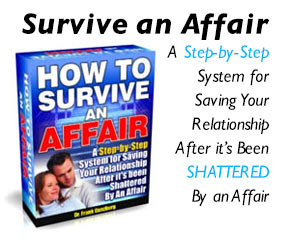Apologize Already
How to Say I'm Sorry: Apologizing and Meaning It
Saying “I’m sorry” when you apologize does not mean “I’m a bad person.”
Unfortunately, too many of us come into adulthood thinking it is awful for someone else to tell us we have behaved poorly and we should apologize for doing wrong.
Apologize Already: How to Say I’m Sorry
Imagine you’ve done something you wouldn’t want someone to have done to you, something that should be followed with an apology.
For example, imagine your spouse asked you to pick up something on your way home. You forgot. Your spouse tells you in a stern voice how much that item was needed. You explode. If this example does not fit with your personality, make up an example for you that would.
In this case, you’re clearly guilty of not bringing the item home and of overreacting when your guilt was pointed out to you.
In dealing with apologies, this is a common scenario I hear in my office. In this case, it seems to me, instead of accepting guilt and apologizing, you’re responding as if you were accused of being a bad or evil person for having forgotten the item.
Sometimes I Feel Like I’m Accused of Being Bad
Almost everyone agrees that no one is perfect, but it requires some sense of self-worth for you to apply that understanding to a situation where you were wrong. In my opinion, the primary difference between being wrong and being bad is almost always a matter of intent. Consider the following situations:
- A man forgot to buy his wife a present on her birthday, whereas he is usually thoughtful.
- A woman cheated her employer by intentionally asking for more reimbursement than she was entitled.
- A married man had a sexual encounter with his boss.
- A woman who was angry with her husband told a group of her friends an embarrassing and private trait of her husband, unrelated to what she was angry about.
- A man left the house late for an appointment without washing the dishes even though he told his wife he would take care of them.
- A woman fell asleep early after indicating to her husband she would make love with him that night.
The situations that were without intent to do something wrong are situations in which I would say the person is guilty, but not necessarily guilty of a bad character. It is these situations where an apology can do the most good. When there has been intent to commit a wrong, an apology has much less meaning.
What is a Good Apology?
There is skill in apologizing effectively. Components of a good apology include:
- Being authentic.
- Demonstrate that you fully understand the impact of what you did or didn’t do.
- Explain, for example, the background, if any, that made the situation worse.
- Explain what you did or didn’t do in detail and how each step contributed to the problem result.
- Explain the final or ongoing hurtful impact of your action or inaction.
- Accept full responsibility without hedging or making excuses or making it seem you had no choice. If you truly had no choice, you’d be better off bringing that up later as a different discussion.
- If authentic, make a commitment to change your future behavior, if presented with the same or similar circumstances.
- Ask for forgiveness, or at least for understanding.
Wow! An Apology Requires An Instruction Manual?
Not all apologies need to be complete apologies. Learn to be more generous with authentically accepting responsibility when you are wrong. If your behavior resulted in hurting your spouse’s feelings, including disappointment or worry, wouldn’t you like to ease those feelings?
Admit It And Move On
Saying “I’m sorry I caused you distress” is not admitting to being a bad person, but it can go a long way toward smoothing hurt feelings and preventing arguments or resentments.
If you know you did something wrong, admit it, apologize and move on. If your spouse won’t let you move on, then you probably missed some of the hurtful impact of your behavior in your apology.
Avoid Angry Apologies
Avoid angry apologies like, “You want me to apologize? Fine, I apologize!” or “I can’t believe you’re so upset about something so ridiculous. You shouldn’t be so sensitive.”
Be careful when apologizing that you address your spouse’s concerns and accept the blame. This will help the two of you to move beyond the mistake.
Will Making a Complete Apology Fix my Marriage Problems?
Good apologies are just part of a good relationship. An honest apology is a simple gift of love. Give it readily when appropriate.
I wish you wonderful success in recovering the love in your marriage.
![]()
Getting Professional Help
If you feel your marriage has deteriorated beyond the point where accepting responsibility for some of the problems in your marriage can help, you can look into my self-help programs, marriage retreats, or marriage counseling with me. I have been helping couples improve their marriages for over 40 years.
If you are unable to travel or would prefer to work with someone closer, I suggest you find an experienced professional, preferably one who is a marriage-friendly therapist like myself.
Tags: Apologize, Save Marriage
Related
- Virtual Therapy
Dr. Gunzburg offers virtual therapy sessions for marriage and other mental health issues. Virtual se... - Advice Blog
This is the popular marriage advice column by Dr. Gunzburg. Married couples from all over the world ... - Arguing
Arguing Arguing in marriage can be harmful because arguing often leads to anger. Of course, it is of...



